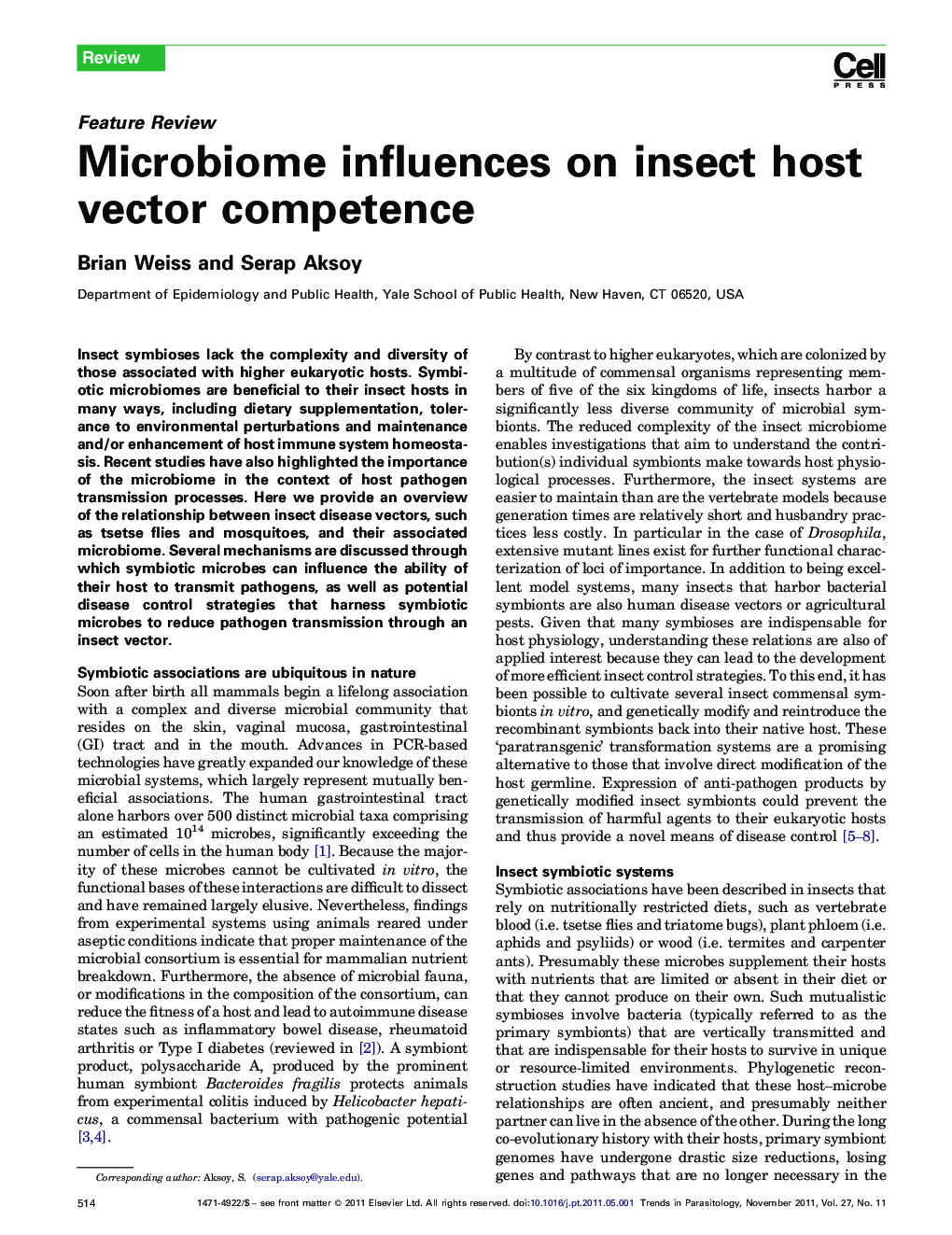| Article ID | Journal | Published Year | Pages | File Type |
|---|---|---|---|---|
| 3423152 | Trends in Parasitology | 2011 | 9 Pages |
Insect symbioses lack the complexity and diversity of those associated with higher eukaryotic hosts. Symbiotic microbiomes are beneficial to their insect hosts in many ways, including dietary supplementation, tolerance to environmental perturbations and maintenance and/or enhancement of host immune system homeostasis. Recent studies have also highlighted the importance of the microbiome in the context of host pathogen transmission processes. Here we provide an overview of the relationship between insect disease vectors, such as tsetse flies and mosquitoes, and their associated microbiome. Several mechanisms are discussed through which symbiotic microbes can influence the ability of their host to transmit pathogens, as well as potential disease control strategies that harness symbiotic microbes to reduce pathogen transmission through an insect vector.
